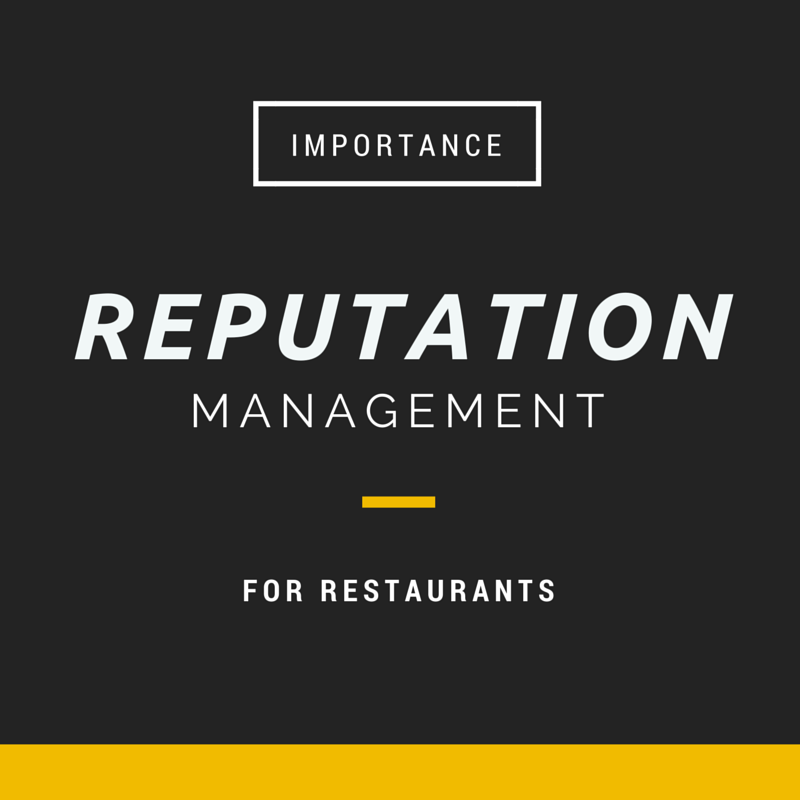Reputation is everything in the restaurant industry. Advertising and free smells may bring in the customers, but they won’t come back if they don’t like the experience. The internet makes it harder than ever to keep a good reputation. Fortunately, there have been a lot of object examples of what not to do. Many of these involve poor responses on social media. Here are six scary reputation stories:

Bigoted Practices
Bigoted restaurant owners have hit the news on occasion. One example is Taco Cid, whose shirts in 2013 showed a racist image against Mexicans. They have since changed the shirts. Sweet Cakes in Oregon turned away a lesbian couple who wanted a wedding cake. That got the attention of social media, and state officials who said the bakery violated state anti-discrimination laws.
How to avoid: Quite simple. Don’t let bigotry into your workplace. Everyone has access to cameras and smart phones these days. If it is there and it is discovered, it will get put on social media and could bring the police to your door.
False Advertising
Subway prides itself on selling foot-long sub sandwiches. One diner took a ruler to his sandwich and found it only measured 11 inches. He posted the image on social media. Others soon started to measure their sandwiches. Only a few met the true foot-long standard. When Subway responded, they said that “Foot long” was a marketing term and that it was “not intended to be a measurement of length.” They were immediately hit with a lawsuit for false advertisement and a torrent of bad press. The lawsuit was settled and now the chain strives to truly make every sandwich 12 inches.
How to avoid: Be honest in your advertising. It’s really that simple.
Unclean Employees
There have been several instances where employee misconduct toward cleanliness was put on social media and caused a reputation backlash. A Taco Bell employee took a picture of himself licking a stack of taco shells and posted it. The photo went viral. By the time Taco Bell could respond, it was too late. Domino’s handled their situation with aplomb. The dirty employees from that store were hit with a lawsuit for food contamination. The restaurant was thoroughly sanitized and they apologized on social media.
How to avoid: No restaurant owner can control every action of their employees, but they can train them in proper cleanliness practices. If a bad employee does something dirty anyway, take Domino’s example to heart. At the very least, fire the employees and clean the restaurant.
Hacking
While very rare, sometimes a company’s social media account gets hacked. This can greatly damage a restaurant’s reputation. Burger King went through this in 2013 with their Twitter account. Thankfully, the tweets made in their name were mostly nonsense rather than anything truly damaging. The attack lasted for about an hour before it was shut down. On the plus side for them, Burger King got 30,000 new followers out of the deal.
How to avoid: While it is unlikely that your restaurant will become a target for hackers, it’s a good idea to be aware of possible security issues with your online presence. Use good passwords for your website hosting and social media accounts that your employees or the public can’t guess.
Treating Customers Badly
Nearly every major restaurant chain has had a reputation faux pas. McDonalds found out about this the hard way. Their intentions were good. They invited people to share their positive stories about visits to McDonalds on Twitter and gave the campaign a hashtag. People immediately took over the tag by sharing their negative experiences, including one person who played on the playground and got a nail in the foot.
How to avoid: Be careful when directly soliciting customer feedback on social media using customer feedback platforms. Be prepared to respond to negativity.
Arguing with your Customers
Finally, there’s Applebee’s, which probably had the greatest reputation disaster of all. It’s a case study of what NOT to do on social media. To tell the entire story would blow this article all out of proportion, so we will link a summary here:
How to avoid: Read the essay, then never think that your corporate policy will override a wave of negative public opinion. The Internet remembers everything.







![Best Crochet Hooks for Beginners and Pros [2020 Update] best crochet books](https://www.awebtoknow.com/wp-content/uploads/2018/01/best-crochet-books-100x70.jpg)